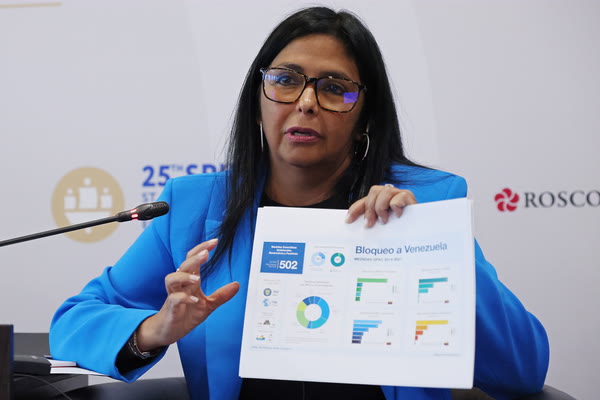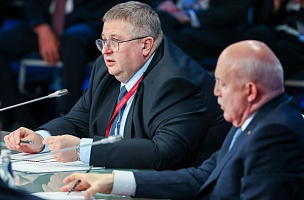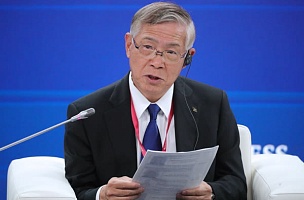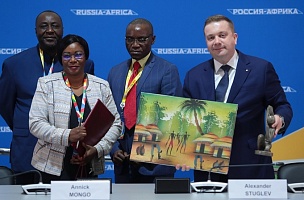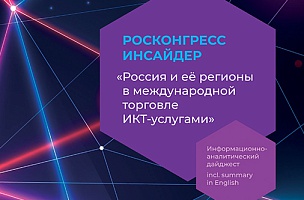KEY CONCLUSIONS
All the Necessary Conditions for Technological Security are Present in Russia
“The conditions necessary for technological security are better here than in other countries – broadly speaking and not only for food, energy, and defence. We’ve got everything – land, water, minerals in abundance. The people are smart, educated, and maybe that’s our greatest asset,” Yury Borisov, Deputy Prime Minister of the Russian Federation.
“Russia has the most important thing – it’s the foundation – energy security, food security. And qualified personnel: developers, workers, and so on,” Alan Lushnikov, President, Kalashnikov Concern.
Damage from Western-Imposed Sanctions Will Work Like a Boomerang
“Practice has shown attempts of this sort to come back and hit the countries imposing the sanctions like a boomerang. In the interim, when the sanctions had not yet fully come into force, those imposing the sanctions were rushing to buy our hydrocarbons, buy our fertilizers and food, fill up their reserves to get by for a certain period without too much pain,” Yury Borisov, Deputy Prime Minister of the Russian Federation.
“Measures of this sort are generally applied as a way of forcing geopolitical change in a country, to worsen the quality of life. [...] But these are really sanctions that will come back to bite the United States and Europe. They are creating problems for themselves,” Delcy Rodriguez Gomez, Executive Vice President, Minister of People´s Power of Economy, Finance and Foreign Trade, Bolivarian Republic of Venezuela.
Sanctions aren’t Going Away Anytime Soon
“The sanctions aren’t going anywhere tomorrow or the day after. These sanctions are aimed at misappropriating the resources of a wide variety of countries. And I think some of the heaviest sanctions are financial sanctions, because they’ve cut off your payment channels. And that’s how the Western world appropriates financial resources,” Delcy Rodriguez Gomez, Executive Vice President, Minister of People´s Power of Economy, Finance and Foreign Trade, Bolivarian Republic of Venezuela.
“The world has changed, [so] we need to behave differently. What was true yesterday is no longer [going to be] for decades to come,” Yury Borisov, Deputy Prime Minister of the Russian Federation.
PROBLEMS
A Lack of State Support Measures to Counteract Sanctions
“Whereas before 2020 we had these companies involved in import substitution able to compensate for up to 50% of project costs and up to 100% of R&D costs, after 2020 there’s an updated version in place, and the ability to compensate has been significantly reduced. Only up to 50% of R&D can be compensated for. And there’s one more important aspect I would like to point out. We now have a number of support measures in place for the radio-electronic industry. After all, this is one of our country’s key strategic industries; practically everything depends on it. There’s a measure, it’s been in place for a year – we’re talking about radio-electronic techno-parks. And there’s a ratio in the works... 50/50 public and private funding. It would be advisable [to adjust it – Ed],” Maria Vasilkova, Member of the Committee of the State Duma of the Federal Assembly of the Russian Federation on Industry and Trade.
“The government has introduced a lot of tools in the last year. [...] Clusters, including interregional clusters. Then there are industrial parks, private and public, science and technology centres, and plenty of other solutions. It’s really important to link it all up now so as to create a long-term order for the country’s future development and for individual regions and cross-cutting infrastructure projects, of course,” Oleg Nikolayev, Head of the Chuvash Republic.
“It’s not only a question of cooperative chains, it’s a question of technological sovereignty, and this generally applies to the issue of establishing production and networks that we don’t effectively have, or we do have, but only very little of. The same heavy diesel engines, especially high-speed ones. These are specific networks in micro-electronics. […] The groundwork has been laid, but it needs to be increased exponentially. And we need to build another financial system for it, because the 393 guarantee and so on - it works. I’m not even talking about the fluctuating exchange rate. But in order to at least plan something, we need long-term money, and the government has to ensure this through development institutions among other things,” Andrey Klepach, Chief Economist, VEB.RF.
SOLUTIONS
The Experience of Other Countries Under Sanctions Should be Adopted
“In this situation, we need to learn from the experience of countries that have been living under sanctions for decades. I hope that my distinguished colleague here, Deputy Prime Minister of the Republic of Venezuela Delcy Rodriguez, will share some thoughts. They’ve been living with this pressure for a number of years. Iran has been living with it for decades, Cuba, Nicaragua, Syria. I think we can benefit from this experience,” Yury Borisov, Deputy Prime Minister of the Russian Federation.
“We are learning a lot from Russia here. [...] Half of the Russian Federation’s international reserves have been blocked or confiscated. It’s the same with the Venezuelan gold that was confiscated by British banks. And with our foreign currency reserves, which were confiscated by European banks,” Delcy Rodriguez Gomez, Executive Vice President, Minister of People´s Power of Economy, Finance and Foreign Trade, Bolivarian Republic of Venezuela.
There Need to be National Champions
“I think that the state still needs to create national champions. Settle all these old disputes between, well, let me put it this way, oligarchs, and say: ‘I guess it’s better to have one that’s efficient than two that are inefficient.’ By dividing the volume, by splitting it up,” Alexey Rakhmanov, Chairman of the Board, Chief Executive Officer, United Shipbuilding Corporation.
“National champions aren’t at odds with competition. Because for our technology, the competition is global. And there are still countries that ship here. And we wouldn’t want to produce nothing for five years and lose partial access to components while our suppliers from other countries don’t. Therefore, the creation of national champions will allow us to develop,” Andrey Vodopyanov, General Director of the Tractor Plants Concern.
“We must cultivate national champions. At the same time, we have to do it in such a way as to ensure we are the best and the most competitive,” Oleg Nikolayev, Head of the Chuvash Republic.
Read more in the the ROSCONGRESS.ORG Information and Analytical System.


